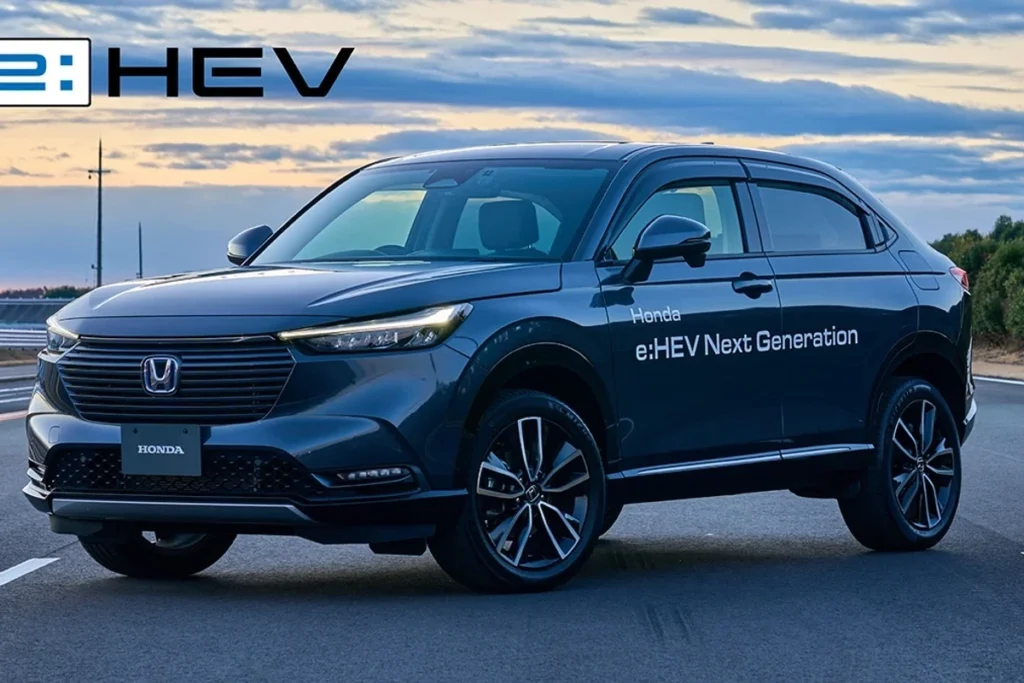
KARACHI: Honda Atlas Cars has announced its intention to introduce Hybrid Electric Vehicle (HEV) models in Pakistan in the near future.
The company formally disclosed this development in a notification submitted to the Pakistan Stock Exchange (PSX) on Friday.
According to company officials, this initiative aligns with Honda’s global commitment to innovation, environmental sustainability, and providing advanced mobility solutions tailored to Pakistani consumers.
A Strategic Shift Toward Eco-Friendly Mobility
In its statement, Honda Atlas emphasized that the introduction of HEVs represents a major milestone in its product lineup, catering to the rising demand for environmentally friendly vehicles in Pakistan.
“The introduction of HEV models will mark a significant step forward in our product portfolio and support the growing demand for eco-friendly vehicles in Pakistan,” the company stated.
While Honda Atlas has not yet revealed specific models or launch timelines, the company assured stakeholders that further details regarding specifications and availability will be shared in due course.
Global Context: Honda’s Hybrid & Electric Vehicle Pricing
Globally, Honda offers a range of hybrid and electric vehicles at competitive prices, including:
– Honda e (all-electric) – Priced around $38,000 in Europe.
– Honda Clarity Plug-In Hybrid – Starts at $34,000 in the U.S.
– Honda Accord Hybrid – Begins at $27,000 in the U.S.
– Honda CR-V Hybrid – Starts at $32,000 in the U.S.
While these international price points provide some insight into Honda’s hybrid strategy, the Pakistani market presents unique challenges, including limited EV infrastructure, high import duties, and regulatory hurdles.
Challenges & Opportunities in Pakistan’s EV Market
Honda’s move reflects a gradual but significant shift toward greener automotive technologies in Pakistan. The country’s auto industry has traditionally been dominated by fossil fuel-powered vehicles, but increasing fuel costs, environmental concerns, and government incentives are slowly driving the adoption of hybrid and electric vehicles.
Electric Vehicle Industry in Pakistan
Pakistan’s electric vehicle (EV) industry has been in a nascent stage for years, but recent policy changes have accelerated its growth. Key developments include:
– 2016-2019: Initial discussions on EV adoption began, with pilot projects for electric rickshaws and bikes in cities like Lahore and Islamabad.
– 2020: The government introduced the National Electric Vehicle Policy (NEVP), aiming for 30% of all new vehicles to be electric by 2030. Incentives included reduced taxes and customs duties on EV imports and local manufacturing.
– 2021-2022: Several Chinese automakers, including BYD and MG Motors, entered the Pakistani market with hybrid and electric models. MG’s HS Plug-In Hybrid and ZS EV were among the first premium EVs introduced.
Current Market Landscape
– Local Assembly & Manufacturing: Companies like Jolta Electric and Sazgar Engineering have started producing electric bikes and rickshaws locally.
– Charging Infrastructure: Limited but growing, with stations being set up in major cities by private players like KE (K-Electric) and Hub Power.
– Consumer Adoption: High upfront costs and range anxiety remain barriers, but rising petrol prices are making EVs more attractive.
Honda’s Entry & Future Outlook
Honda Atlas’s announcement signals a major shift as traditional automakers begin embracing electrification. While hybrid models (HEVs) are an intermediate step before full electrification, they represent a crucial transition for Pakistan’s auto sector.
Challenges Ahead:
– High Costs: Import duties and lack of local assembly could keep prices elevated.
– Infrastructure Gaps: Limited charging stations and power supply issues may slow adoption.
– Consumer Awareness: Many buyers remain unfamiliar with EV benefits and maintenance.
Opportunities:
– Government Support: Tax incentives and policy backing could boost EV adoption.
– Local Manufacturing: If Honda or other automakers start assembling hybrids locally, prices may become more competitive.
– Energy Savings: With Pakistan’s high fuel costs, HEVs and EVs offer long-term cost benefits.
Honda Atlas’s planned HEV launch is a significant step toward sustainable mobility in Pakistan. While challenges remain, the growing focus on hybrid and electric vehicles—supported by government policies and shifting consumer preferences—indicates a promising future for the EV industry in the country. As more automakers join the trend, Pakistan’s automotive landscape is set to undergo a green transformation in the coming years.